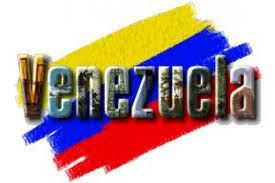Democracy is not to be mistaken for unrestricted majority rule. Majority rule is a convenient tool to make decisions in any democratic society but this rule must be applied only under a very strict and stable constitutional framework – one that places human rights and freedoms above all other laws. These rights and freedoms are universal in nature and cannot be divided or superseded by any other political, social, economic, cultural or religious considerations.

The International Bill of Human Rights, a United Nations compilation of mandatory rules, proclaims them in the Universal Declaration of Human Rights, the International Covenant on Civil and Political Rights (with its two Protocols) and the International Covenant on Economic, Social and Cultural Rights. Any Constitution, any law, any rule, any kind of government not abiding by the rights and principles internationally approved in these documents is NOT democratic. Therefore, the answer to whether democracy is dead, is a categorical NO! Democracy is suffering critical ailments and we all have an obligation to support it and make it better. To make it better, world democracies must unite and make a solid front with all these principles and rules supporting human rights and freedoms, and must promote the mechanisms and tools to make them enforceable by all means available to the international community.
Tony Blair offers his own pragmatic views on this question as follows:
Is Democracy Dead?
- For True Democracy, the Right to Vote Is Not Enough
- Turning Point: Russia annexes Crimea, formerly an autonomous area of Ukraine
 Democracy is not in good shape. Many systems seem dysfunctional: The U.S. Congress, the coalition government in the U.K., and many governments in Europe have had difficulty making the decisions necessary to finding a way back to economic growth. Some fledgling democracies seem, in the short term at least, less competent to serve the needs of their citizens than some autocracies are.
Democracy is not in good shape. Many systems seem dysfunctional: The U.S. Congress, the coalition government in the U.K., and many governments in Europe have had difficulty making the decisions necessary to finding a way back to economic growth. Some fledgling democracies seem, in the short term at least, less competent to serve the needs of their citizens than some autocracies are.
Take all this together and add the profound nature of the challenges of recent times — the extremism convulsing whole nations in the Middle East and beyond; the ongoing financial crisis in Europe; the conflict in eastern Ukraine and Russia’s annexation of Crimea — and it is not surprising that we have seen the rise of far-right parties in Europe and a general sense of malaise and disillusionment with democratic politics. Suddenly to some, Putinism — the cult of the strong leader who goes in the direction he pleases, seemingly contemptuous of opposition — has its appeal.
- Hits: 16847
 [ Lea
[ Lea 
